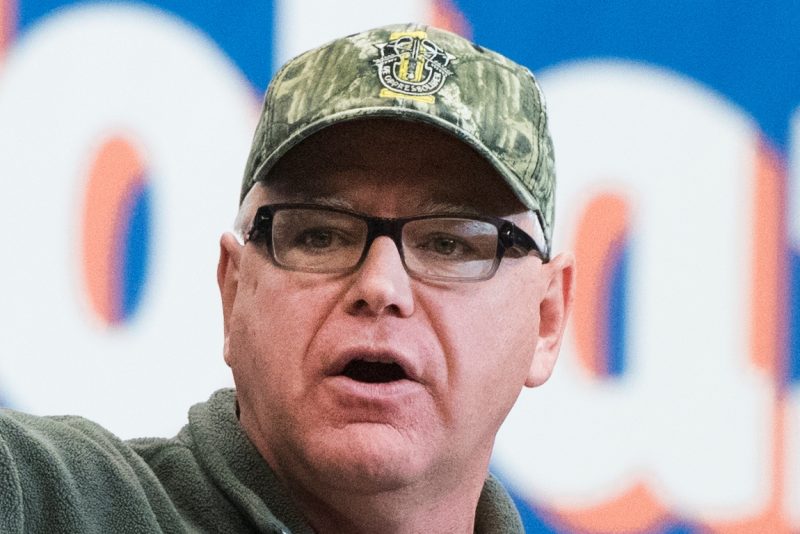Tim Walz: The Transformation from NRA Endorsed to Gun Control Advocate
Tim Walz, a Democratic member of the U.S. House of Representatives from Minnesota, has undergone a notable transformation in his stance on gun control over the years. Originally endorsed by the National Rifle Association (NRA), Walz shifted his position to become a vocal advocate for gun control measures. This shift sheds light on the evolving dynamics of gun politics in the United States and the factors that can drive a politician to reconsider their stance on such a contentious issue.
Walz’s initial endorsement by the NRA highlights the traditional alignment between conservative politicians and pro-gun organizations. For many years, the NRA has wielded significant influence in shaping gun policies in the U.S., often endorsing candidates who support their agenda of protecting gun rights. Walz, as a proponent of Second Amendment rights, was seen as a natural ally of the NRA and received their endorsement during his early political career.
However, as mass shootings and gun violence continued to plague the country, public opinion on gun control began to shift. The tragic school shooting in Parkland, Florida, in 2018 served as a catalyst for renewed calls for stricter gun laws and sparked a national debate on the issue. In the face of growing public pressure and changing attitudes towards gun violence, Walz reevaluated his position on gun control and started advocating for more stringent measures to address the crisis.
A pivotal moment in Walz’s transformation came with his decision to return campaign donations from the NRA in the aftermath of the Parkland shooting. By rejecting financial support from the NRA, Walz signaled a break from his previous alignment with the organization and demonstrated his willingness to take a stand on the issue of gun control. This move not only garnered attention but also underscored Walz’s commitment to prioritizing public safety over political convenience.
The shift in Walz’s stance on gun control can also be attributed to his constituents’ changing priorities and demands. Representing a diverse constituency in Minnesota, Walz likely felt pressure from constituents who were calling for action on gun violence prevention. As a representative, Walz had to balance his personal beliefs with the needs and expectations of those he represented, leading him to reassess his position on gun control in response to the evolving views of his constituents.
Moreover, Walz’s transformation reflects a broader trend within the Democratic Party towards a more proactive stance on gun control. In recent years, many Democratic politicians have embraced gun control as a central issue, advocating for measures such as universal background checks, assault weapons bans, and red flag laws. By aligning himself with the party’s stance on gun control, Walz positioned himself as part of a larger movement seeking to address the epidemic of gun violence in the country.
In conclusion, Tim Walz’s journey from being NRA-endorsed to becoming a gun control advocate exemplifies the complex interplay of factors that can influence a politician’s stance on contentious issues. His evolution underscores the changing dynamics of gun politics in the U.S., shifting public attitudes towards gun control, and the evolving priorities of Democratic politicians. By taking a principled stand on gun control, Walz has positioned himself as a leader in the effort to enact meaningful reforms that can help prevent gun violence and protect the safety of communities across the nation.

